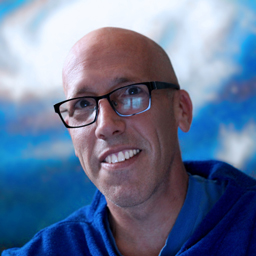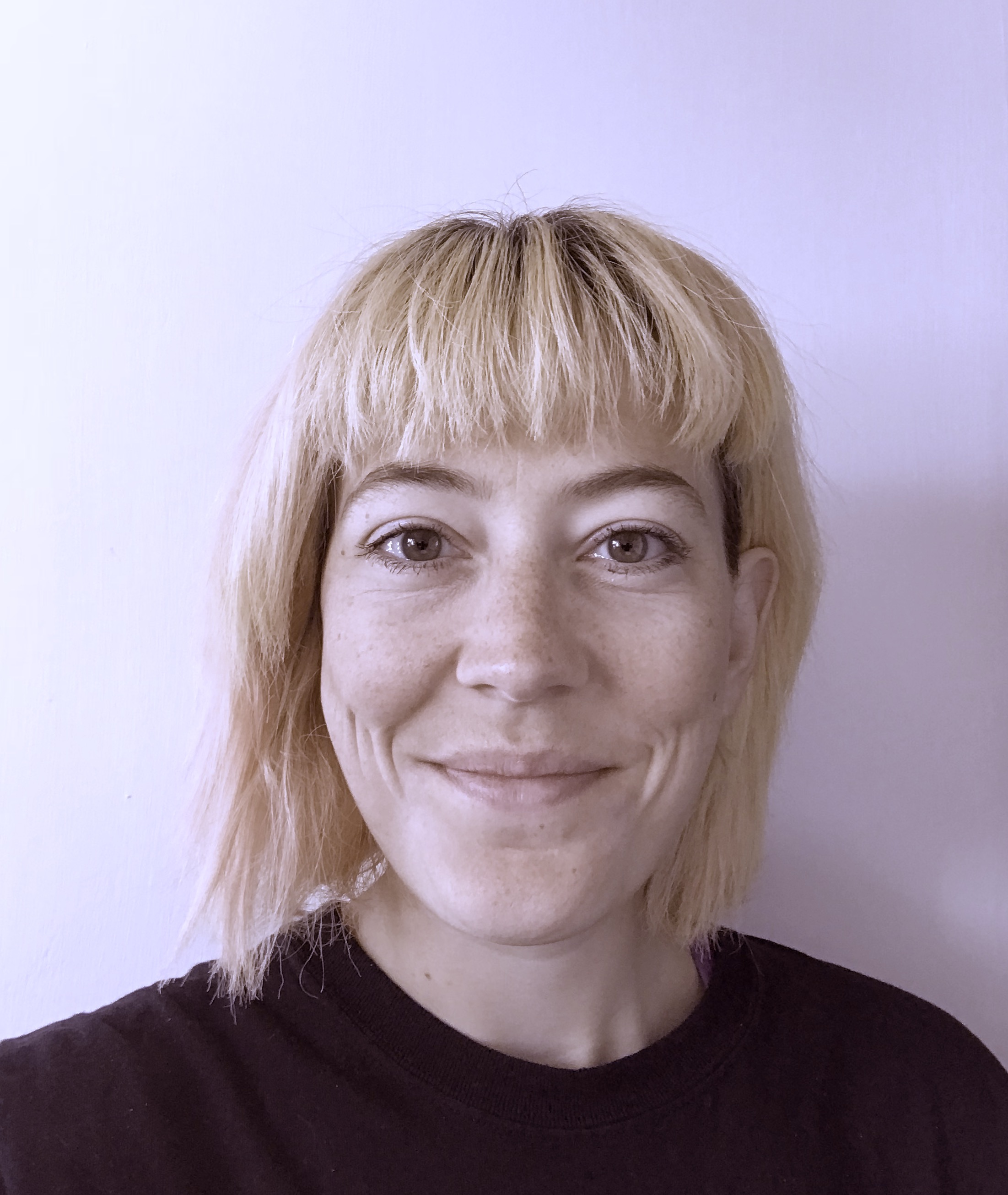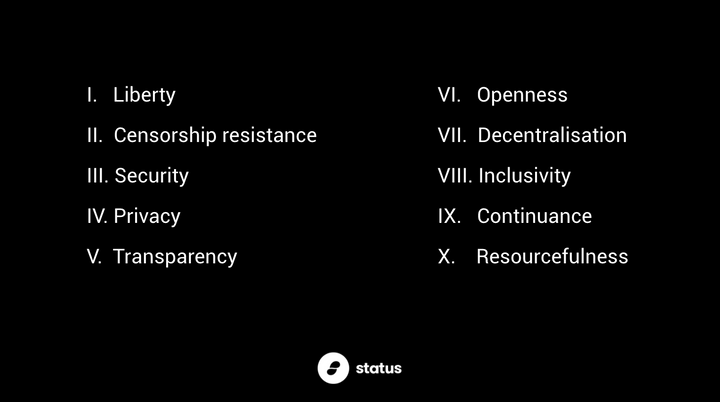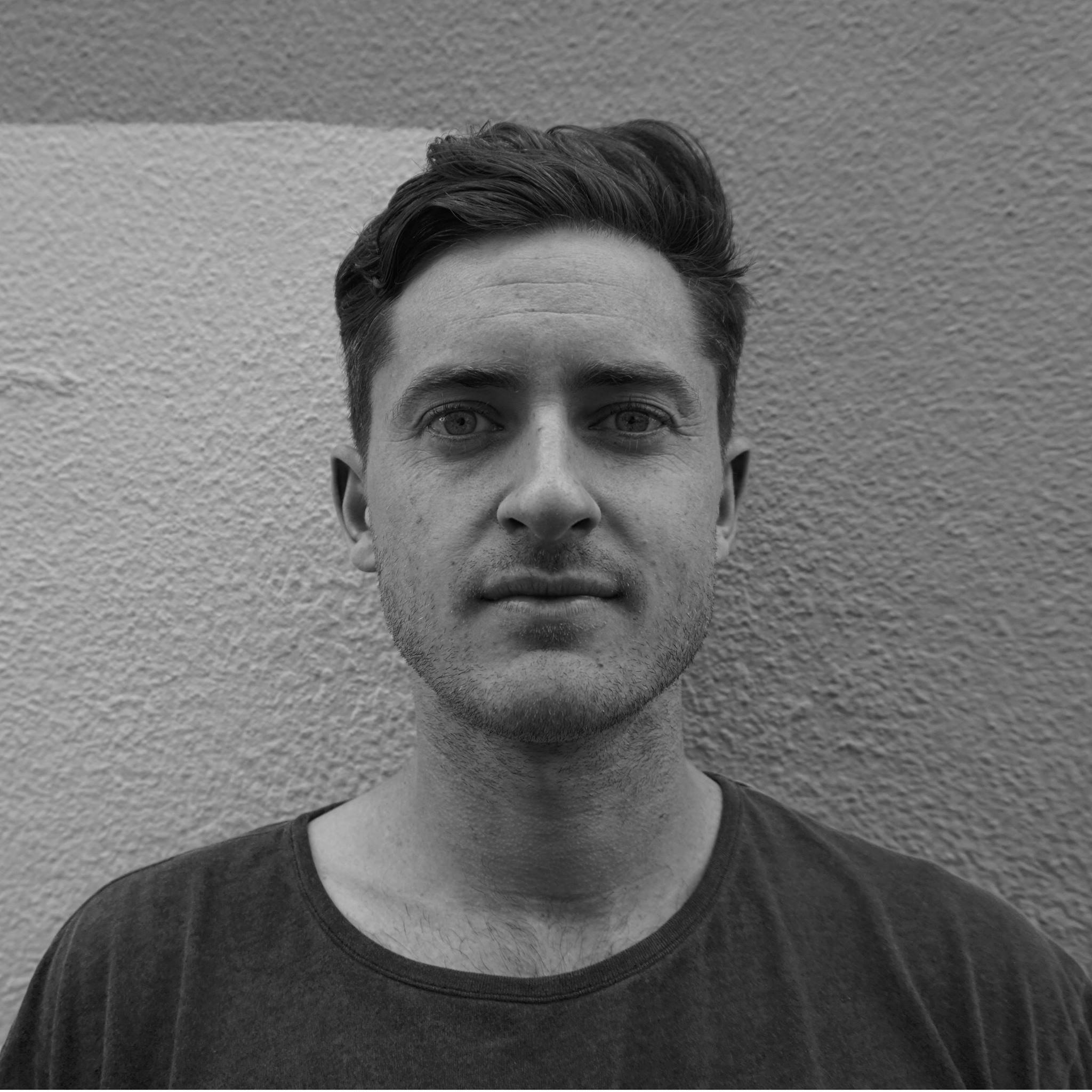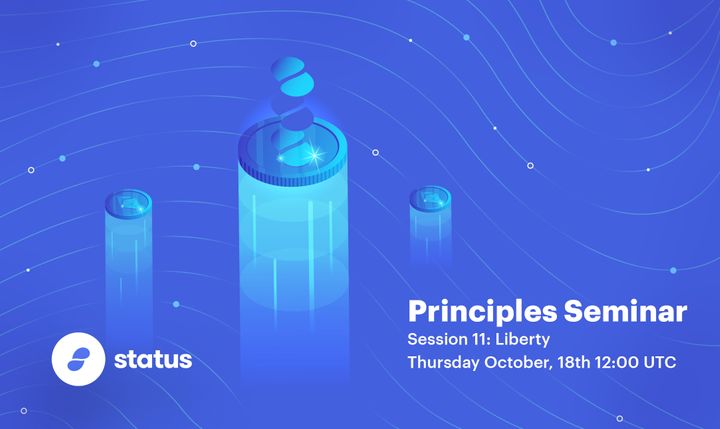In the ninth session of this 12 part series, join status' core contributors as we discuss and debate to which degree we uphold our principles, how we can improve our performance, and what we're adding to our Wall of Shame.
Transparency:
We create software incentivized to continue to exist and improve, without the stewardship of a single entity or any of the current team members.
Slide Deck:
Seminar Opening presentation
Seminar Index
Continuance Session Notes (reprinted below)
Youtube:
Wall of shame
- We are the sole entity implementing status; it's on github, but there are no alternative implementation.
- Updating and creating new content for Studio, want community contributor to contribute to it. Ideas but nothing executed on right now
- No incentive mechanism to host Status node to keep going
- Reliance on core contributors, or lack of other contributors
- Incubate POV two-way dialogue, similar to Studio
- Missing from Marketing in general more OSS marketing approach, something to facilitate two-way convo
- Hire people in old employee model, don't lend itself to working on replacing yourself kind of mindset, succession plan not reliant on single people
- Still developing metrics for ambassadors compensation advocacy program, not set in stone yet
- We lack a rigorous alternative to P&L, no breakeven point
- We don't have a structure for further funding or continuance that isn't based on one big one time Status multisig
- Centralized company structure without open governance. Lots of information is opaque, such as finances, hiring, roadmap, etc
Notes
Belief in SNT
[Oskar]
Using funds to vote for features. Public good funding.
[Michael]
Are there additional tokens to be released to the market? Only a portion of SNT sold to the market. Can we raise further funds by releasing more SNT? Can there be a Status multisig for our tokens?
[Ricardo]
Part of the token are not yet claimed, we cannot move them before a timeline. We have access to the amount raised via ICO. In future, other parts of SNT will be available.
Clear - collectively, we don't seem to know how this works.
[Oskar]
Multisig has a bunch of funds, not a solution to say "oh there are more funds" - that doesn't solve the sustainability problem, it just punts it to centralized source of funding.
[Sorry can't tell who said this - display names not showing on Zoom]
Businesses have the discipline of a bottom line. How does the DAO affect this?
Why are we walking about income streams? Do we need income? Income helps continuance.
[Oskar]
Think about a country like US, USD, gov and economy. Don't get rich from printing money, and gov takes some % taxes for public goods. Wealth comes from activity in economy by businesses. This is the p2p decentralized model. Then connecting this with funding of public goods is an open model.
[Ricardo]
Payment system to charge fees, to generate income.
[Michael]
No incentives to run a Status node. What can we do to change that?
[Ricardo]
You become a node because you have an interest in providing a service.
[Graeme]
It's a nontrivial thing to get it up and running.
[Kim]
Change up our marketing model - go back to grassroots marketing techniques. Allow people to have input outside of normal social channels. Need the ability to engage with community, identify leaders within the community. Advocacy will help to enable. Need evangelists and ambassadors. From an incubate persecptive, need to figure out how we tap into the community. Incubate is piloting the advocacy program. Marketing is tethered to old-world tools. Not tailored to open source or decentralized. Twitter is king.
[Akshi]
Model is clear - laid out in the studio strategic doc. Use SNT to incentivise people to create content, and users to rank/rate content. Groups that want to hire qualified devs - would go to Studio. Similar models exist with the education sector. How do we get more people to contribute? Need to get awareness out there of what we're going (marketing should know more on this). Our engagement is too fragmented across too many channels. Slack, discuss, Status chat, twitter dev account - so many different forums. Are we fragmenting our audience?
[Michael]
Is our legal structure set up for continuance.
[Sonja]
Philosophy/values on one side, but orgs still have to incorporate to issues tokens. We have 3 companies - most for purposes of balancing legal frameworks for service/employment agreements. Covering risks using the legal structure.
[Michael]
The DAO is far off, might not even happen. Jarrad said: the network becomes the sum total of the p2p transactions/contracts. Will we ever actually establish a DAO.
[Sonja]
It's not about calling it a DAO. It's about doing the things that would represent it. Voting, smart contracts. Far future. But we can implement the features of DAO - but the structures have to change. Can't have employees, centralised structures.
[Michael]
Reliance of CCs and traditional hiring mode.
[JB]
Pragmatism in our approach to hiring. Default to what we know in lieu of a clear alternative.
[Michael]
We're a hot project. Why aren't we getting more contributors?
[Barry]
Core of Status chat is specialised. Requires a lot of time investment to get started. Average developer may not get it. There are other blockchain projects with more simple approaches. We require specialised knowledge. If there was a plain vanilla JS build - we might see more developers jumping in and building. Build a second simple client, and see if it brings in more contributors.
[Oskar]
Not convinced that we're focused on growing contributors. More of a cultural problem.
[Barry]
We're doing small test - created a bounty for UI components. Someone took it on. When you think of another contributor, think about them - they probably have a job, they're busy, they don't have much spare time?
[Michael]
They're the same people that contribute to other open source projects. 2 issues I'm taking away from today's call:
- technical difficulty.
- fragmented outreach.
[Ricardo]
The more users, the more incentive to contribute.
[Graeme]
Extensions are really exciting step that should help.
[Chad]
Mission - what are we doing it all for? We need to stand out.
Impact of the mission - we don't have a lot of users right now, so what impact can we have.
[Kim]
We need a plan for how to attract users. We talk to core Ethereum members/users. We need to attract people outside that community.


